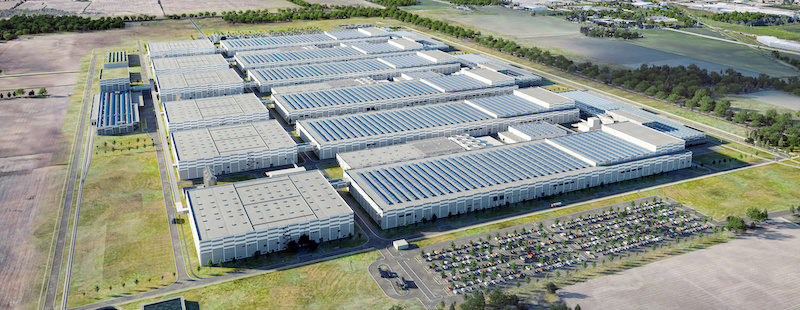
20 years to break even for VW, Stellantis EV battery deals, PBO says
By Nojoud Al Mallees, The Canadian Press
General AutomotiveFeds argue subsidies will encourage investment in Canada with spill-over effects for the economy.

A visualization of the EV battery gigafactory Volkswagen intends to build in St. Thomas, Ontario.
(Photo credit: Volkswagen AG)
OTTAWA – The parliamentary budget officer says it will take the federal and Ontario governments until 2043 to break even on their electric-vehicle battery deals with two automotive giants.
The governments announced subsidies for Volkswagen and Stellantis-LG Energy Solution this year to entice them to build electric vehicle battery plants in Canada.
A report released by the PBO on Tuesday says it will take 20 years for government revenues generated from the production of both plants to equal the production subsidies, which will total $28.2 billion by the end of 2032.
In March, Canada reached a deal that will see Volkswagen get up to $13.2 billion in production subsidies for batteries they produce at a plant planned for St. Thomas, Ont.
Stellantis later asked for a similar deal for a plant it’s constructing in Windsor, Ont., and ultimately secured a $15-billion agreement.
The production subsidies for both plants are supposed to mirror incentives offered by the U.S. through the Inflation Reduction Act, a law passed in the summer of 2022 that makes significant investments in the green economy.
The cost of the Canadian production subsidies are to be shared between the federal and Ontario governments, with Ottawa shouldering two-thirds of the cost.
However, the PBO report includes a notable caveat: the analysis does not include any additional government revenue that may be generated from spillover effects in the economy.
That’s in contrast to the federal government’s five-year break-even calculation for the Volkswagen deal, which includes expected revenue from production increases across the supply chain.
The Liberals have argued that these hefty production subsidies will have larger effects in the economy by encouraging more companies involved in the automotive industry to invest in Canada. That, in turn, would help push the country ahead with its green transition plans.
Industry Minister Francois-Philippe Champagne said the PBO’s findings demonstrate that the agreements are “good deals.”
“While the parliamentary budget officer’s report does not capture many of the broader economic impacts on the supply chain, it does highlight, once again, that the investments will generate economic benefits far greater than our government’s contribution,” Champagne said in a statement published on X, formerly known as Twitter.
The federal government has not provided a break-even estimate for the Stellantis deal.
www.pbo-dpb.ca
